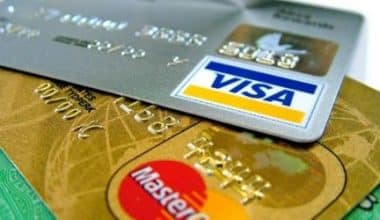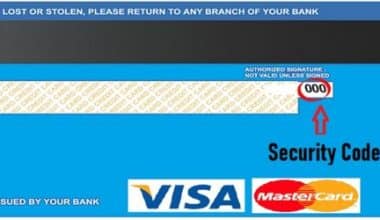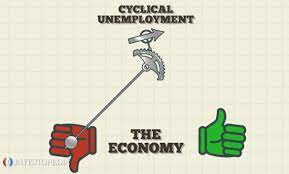Key money is any form of non-refundable payment, usually money that is paid to the owner of a property, e.g. a landlord or manager in exchange for a lease.
However, giving a landlord money to secure a lease is prohibited under the law. In fact, any lease that requires a tenant to pay key money to a landlord is seen as void.
More so, anyone seeking to receive key money is guilty of an offense and can be fined over $10,000.
Find out how key money works, and why it is seen as an offense as you read through this article.
What is Key Money?
A fee paid to a manager, landlord, or even a current tenant to secure a lease on a residential rental property is known as key money.
The term is also used to describe a security deposit. In some competitive rental markets, however, key money describes a gratuity or bribe.
Charging key money for commercial real estate agreements may be legal in some cases, as long as it is written into the lease for the property.
Furthermore, the term key money has different meanings in various parts of the world and in the U.S.
In some places, key money is used interchangeably with a security deposit. It is the equivalent of one or two months’ rent, and it is due when the lease is signed.
Laws vary by state, but in general, this money must be held in escrow and returned to the leaseholder, with interest, when the lease expires.
READ MORE: HOUSING RATIO: How to Calculate Housing Ratio with Ease (+ Free Tools)
When Is Key Money a Bribe?
In some cities, a prospective tenant will pay key money to a property owner or manager, a building superintendent, or even the current tenant in order to secure a rental contract. The key money in such cases is a bribe to ensure that the prospective tenant’s application is chosen over others.
This practice is restricted to cities with low vacancy rates and high prices, especially if some rentals are subject to price controls, making them even more desirable.
Key money demands in exchange for apartment leases were once common, if illegal, in New York City.
The city’s complicated rent stabilization regulations resulted in a two-tiered system of extremely expensive market-rate units and scarce rent-stabilized units. The city’s rent stabilization laws remain in effect, but it appears that the practice of paying key money is no longer widespread.
READ MORE: Real Estate Industry: Overview, Types & Examples
Key Money for Commercial Property
Payment of key money for commercial real estate is still common in New York City, according to brickunderground.com, and it’s perfectly legal in this case.
In exchange for a payment of key money, the holder of an attractively priced long-term commercial lease may sign over the lease to a new tenant. It is especially common when the previous tenant is signing over a property.
Legal Eagle notes that requiring key money may be legal if it is specifically written into the lease for the property.
In some countries such as Japan and Mexico, giving key money to your landlord as a gift is common.
READ MORE: Gross Pay: Definitions, Calculations and Examples (+Quick Tools)
Other payments
Although key money is prohibited, the landlord or agent may still receive rent in advance, a security bond, or some other bond or guarantee from the tenant.
However, the landlord bears the full cost of preparing the lease, as well as the mortgage consent fee.
But if the tenant wants to change the tenant’s disclosure statement after returning it to the landlord, he/she may be required to pay extra fees.
More so, when a tenant asks to assign a lease, the landlord can expect to pay their legal costs.
These costs are not key money because the landlord does not benefit from it. In fact, it is an extra cost that they would not incur except for the tenant’s request (assignment).
Leases of more than three years duration, including any option period, must be registered. The registration fee is usually paid by the tenant.
Since key money is illegal in most cases, it is often disguised as;
- Made-up additional charges for ‘cleaning’, ‘contract drafting’, ‘administration’, ‘registration’, etc.
- An obligation for the tenant to take over furniture or other items from the landlord or vacating tenant, for an amount which does not reflect the true economic value of these items.
- Demanding large security deposits which are only repayable at face value (thus without interest). Maleficent landlords could even as a matter of principle not return any security deposits at all.
READ MORE: HOUSE FORECLOSURE Explained!!! (+ Detailed guide to buying Foreclosed homes
What Does Key mean in money?
Any non-refundable benefit, usually money, that is given in exchange for the granting, renewal, extension, or assignment of a retail lease is known as key money.
What does key money mean in Japan?
In Japan, a new tenant’s payment to the property’s landlord, known as “key money,” is obligatory. After the lease is terminated, the landlord does not receive this money back because it is regarded as a gift.
What is key money in UAE?
In order to secure a lease on a residential or commercial property, “key money” is regarded as a charge paid to a manager or a landlord. A security deposit is another name for the phrase.
Is a key a pound?
US English. The telephone key that corresponds to the “pound sign” is known as the “pound key” in American English. The word “pound sign” typically refers to the symbol # (number sign).
Is key money negotiable?
Try to work out a deal. On key money or even rent, a slight discount can be negotiated. At some periods of the year and for particular types of houses, your agent will find it simpler to negotiate on your behalf.
Is key money legal in UK?
It’s also prohibited for a landlord to collect a fee to establish or renew a tenancy. Before you sign a lease, a private landlord or rental company may request a deposit to reserve a space. It’s illegal in Scotland and is commonly referred to as “key money” or a “holding deposit.”
Key Money Scenarios
Scenario 1
A landlord is seeking payment of $10,000 from the tenant before giving the tenant access to the premises at the start of the lease. This payment is likely to be key money and prohibited by the Act.
Scenario 2
A landlord agrees to consent to assign (i.e. transfer) a lease to a new tenant if the existing tenant first pays the landlord $20,000. The existing tenant receives nothing in return other than the landlord’s consent to the assignment. This payment is likely to be key money and prohibited by the Act.
Scenario 3
A tenant who is in arrears asks for their lease to be assigned to a new tenant. The landlord agrees if the new tenant pays the arrears owed by the existing tenant. This payment is almost certainly key money, thought wouldn’t be if the existing tenant was asked to make the payment.
READ MORE: FORECLOSURE LISTINGS: How to find Free Foreclosure listings stress-free
Key Money Korea
Jeonse, also known as Chonsei, Key Money Deposit or Key Money, is type of a lease or deposit common in the South Korean real estate market.
Instead of paying monthly rent, a renter will make a lump-sum deposit on a rental space, at anywhere from 50% to 80% of the market value.
The owners make profit from reinvesting the jeonse deposit, instead of receiving the monthly rent. It is also possible to combine a lower jeonse with a lower monthly rent.
Jeonse involves the tenant giving the landlord a large sum of “key money” when a lease is signed.
The amount of money required depends on the economy and the location of the property. Usually, the amount required is 50% of the property’s value but can be as high as 60-80%.
In 2014, it was reported that the average cost of a Jeonse in Seoul equals to almost $300,000 USD.
The tenant is then allowed to stay in the property “rent-free”, not requiring any additional monthly payments, until the end of the lease, which is usually 2 years. Utilities and other costs (water, gas, electricity, cable, phone, internet, security) are applied for and paid by the tenant.
The landlord makes a return by taking the deposit money and investing it and keeping all interest earned on the deposit. The tenant’s deposit is protected by having a lien issued against the property for the amount given. The entire deposit is then returned to the tenant at the end of the lease.
In rare cases where the property has been damaged, the damage has to be fixed to the landlord’s standard before a landlord will return the deposit.
READ MORE: Real Estate Trends: Comprehensive Market Trends 2021
More about Key Money in Korea
This system is popular for two main reasons. First, there are very few mortgages in South Korea, so it is difficult for consumers to own a home. Also, real estate prices continue to increase so fast that some see the situation as a housing bubble.
During times of lower interest rates, monthly rent, is more often used. With a monthly rent lease, a renter signs a lease for 1 or 2 years and makes a deposit on the apartment equal to perhaps 10% of the market value. The renter then pays monthly rent.
Depends on where and what you like, but Seoul is relatively expensive. On average: rent: for one person, no shared Korean style villa or officetel (studio room) rent can be between $600 – 1500. This depends on the location and amenities – food: eating out is not too expensive if you go for Korean food.
READ MORE: Comparative Market Analysis: Real Estate Management
Key Money Japan
In Japan, reikin (“gratitude money”) is a mandatory payment to the landlord that is often the same amount as the original deposit (shikikin).
However, reikin can be the equivalent of six months (or more) of rent, but is typically the same as one to three months of rent. This money is considered a gift to the landlord and is not returned after the lease is canceled.
There are regional variations – in Kantō (Eastern Japan, including Tōkyō). A renewal fee (kōshinryō) is typically charged at contract renewal, similar to repetition of key money. While in Ōsaka key money is instead deducted from a large security deposit, which is known as shikibiki), from “rental deposit” (shikikin).
In recent years, an increasing number of landlords and real estate agencies have begun to offer reikin-free rental housing, and the semipublic Urban Renaissance Agency does not charge key money or renewal fees.
Due to the arbitrary nature of this payment, AIRINC does not include it in their rent or utility budgets. As it is standard practice for tenants to pay the fee to the landlord, the recommended approach is for employers to reimburse the assignee directly for this expense.
READ MORE: PATIO HOMES: Best Patio Home listings for Sale & Rent (+ Quick Guide)
Bottom Line
I hope this article explains what key money really entails. If you have any questions or suggestions, kindly let me know in the comments section.
All the best!
Recommendations
- Mortgage: Simple 2021 Guide for Beginners and all you need Updated!!!
- Financial Stability: Best Practices & Every detail you should know
- Best mortgage lenders: 2021 picks updated (+ detailed guide)
- HOUSE POOR: Best Easy Guide to Buying a House Poor Credit (+ Free Tips)
- DETERMINANTS OF DEMAND Explained!!! ( +Detailed Guide)






